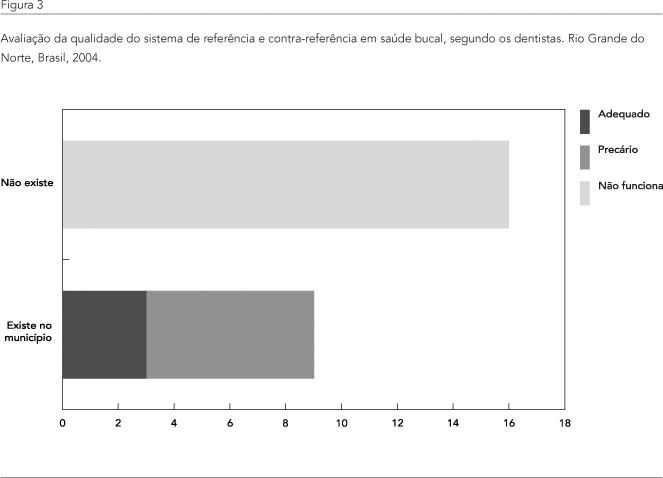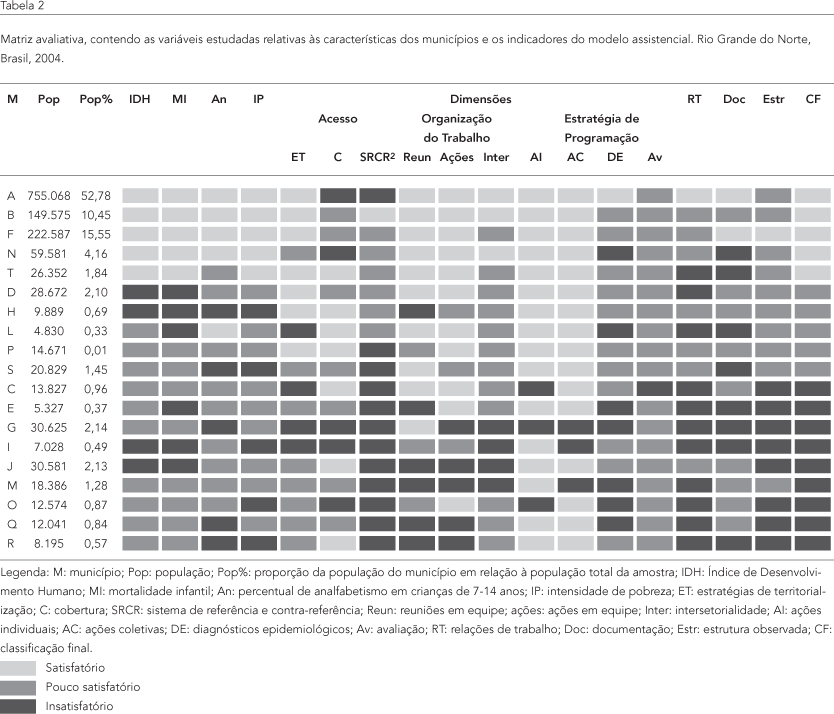The purpose of this study was to evaluate the addition of oral health teams to the Family Health Program in the State of Rio Grande do Norte, Brazil, by analyzing factors that can affect the process of changing oral health care models. The evaluation involved three dimensions: access, work organization, and planning strategies. 19 counties (municipalities) were randomly selected. The data collection instruments were: structured interviews with health managers and dentists, structured observation, and documental research. The study identified a lack of formal employment contracts for dentists, difficulty in referring patients for high-complexity procedures, and problems with the development of inter-sector activities, epidemiological diagnoses, and work evaluation. Most of the counties showed little or no improvement in oral health care. The counties that had improved their oral health care were the same ones with higher life expectancy, lower infant mortality rates, higher per capita income, and higher human development index (HDI). In conclusion, public policies that include aspects beyond the health sector are decisive for a real change in health care models.
Oral Health; Family Health Program; Health Services





